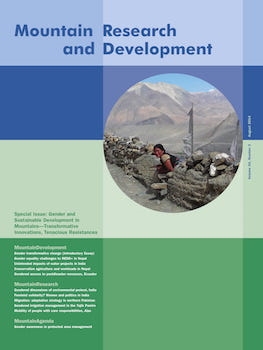The present article argues for better assessing how drinking water supply interventions affect gender relations. This requires going beyond conventional “water burden” indicators such as time spent collecting water or distances walked to a water source. Based on research in the Shivalik hills of northwest India, the article shows how men's expectations of water uses changed when interventions brought piped water supplies to the area. Though the interventions reduced the distance women walked to reach water sources and the drudgery of negotiating steep mountain slopes, there was an increase in the volume of water women were expected to carry. Following the interventions, men began performing many water-use functions in the privacy of their homes rather than at public water sources, and women were forced to carry more water home for these purposes. The decline of common property resource institutions also resulted in greater dependence on piped water supplies, further increasing the volume of water women must carry. Employing a qualitative research design relying on semistructured interviews, direct observation, and participatory rural appraisal tools, the study described here makes a case for more qualitative assessments of water supply interventions' impacts on mountain women's quality of life. This would yield a better understanding of women's water burdens.
How to translate text using browser tools
1 August 2014
Shifting the Focus From Women to Gender Relations: Assessing the Impacts of Water Supply Interventions in the Morni–Shiwalik Hills of Northwest India
Vishal Narain
gender relations
India
Shivalik
Water burdens
water collection





